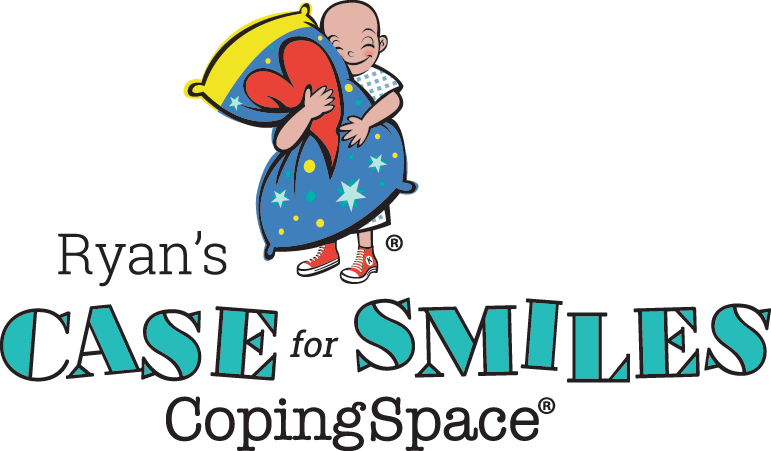BLOG
How to Support Your Relationship When Your Child Is Ill
Cindy Kerr / February 14, 2019
 When my son Ryan was diagnosed with cancer, I was terrified for him and worried how his illness and hospitalizations would affect my two daughters. It didn’t dawn on me until later the impact it might have on my relationship with my husband.
When my son Ryan was diagnosed with cancer, I was terrified for him and worried how his illness and hospitalizations would affect my two daughters. It didn’t dawn on me until later the impact it might have on my relationship with my husband.
For the first year we were like ships passing in the night. One of us would be at the hospital and the other would be at work or home with our other children. Like most couples, at most times, we had our joys and struggles. What we found was that the highs and lows were more intense, and sometimes put a strain on our marriage. But through it all, we were able to support each other through the emotional rollercoaster and ultimately we found that our relationship grew stronger.
Most studies show that marital distress increases for parents of chronically ill children. The good news is these couple do not divorce at a higher rate.1 That said, it does take work. I gathered a few tips, based on research and my own experience, that may help you keep your relationship strong.
9 Ways to Maintain Your Relationship While Your Child Is in Treatment
Remember, You Are a Team
No matter where you are in your treatment journey, you’re likely to face challenges, questions and change. And it’s common to not always agree on what’s best for your child. When disagreements occur, try to keep in mind that you’re on the same team. Joint problem-solve and focus on finding the best solution for the family, not who wins.
Make Time for Each Other
Between hospital stays, work, childcare and millions of other responsibilities you face, it’s hard to find a spare moment in the day. But it’s near impossible to feel emotionally connected when you never are together. Try creating a set time to reconnect. Be sure to check in on how each other is doing, not just share medical updates.
Share Your Experience and Ask for What You Need
It’s normal to sometimes feel disengaged from your partner, or that they no longer know you. You’ve been through a lot and have probably changed! But, most likely, they aren’t a mind-reader. You need to be open and communicate your needs. What is stressing you out? How are you feeling about your child’s diagnosis/treatment? What kind of support do you need at this moment in time?
Don’t forget to choose the right time and place. Hospitals are not often conducive to private, deep conversations. If you have to talk there, ask the staff for a quiet room. And try to choose a time when your partner isn’t in a rush and, if possible, is well-rested.
Ask, Then Listen
Be sure to give your partner the opportunity to share as well. They may need a little prompting, so ask directly how they are coping and what they need. When they respond, be sure to truly listen. Don’t instantly seek to fix the problem or share your opinion. Their experience and ways of coping may be very different from your own, but that does not make them any less valid.
Share the Load and Say Thank You
Juggling it all can be overwhelming. Help each other reduce daily stress around jobs, childcare, housework and medical needs. Creating clearly defined roles and responsibilities could make this easier.
And don’t forget to express your gratitude. With so much going on, it’s common to sometimes feel taken for granted. A simple thank you can really make a difference.
Take Care of Yourself to Be a Better Partner
You’re likely sick of hearing it, but you have to take care of yourself. Be sure to meet your basic needs (no one is at their best sleep-deprived or hungry!) and find an outlet for stress relief. Then, help your spouse do the same.
Lean on Outside Support
No one can be everything to one person. While they may be your greatest support, your partner is struggling too. Lean on friends and family when you need an unbiased ear, a break or extra help. They are likely eager to help.
Watch for Trouble Zones
Research has shown that the start and completion of treatment are often when couples feel the least connected.2 At the start, there are so many decisions and adjustments to be made, while the end has its own special set of challenges. Be sure to keep talking, even when it seems like there are a million things to do.
Sometimes, You Need to Call in a Professional
Seek counseling or another form of professional support if you feel it would help. You can do this on your own or together. You are facing an incredibly challenging situation. There’s no shame in needing a little guidance. A professional may be able to help you communicate and deal with stress more effectively, address new challenges, and remain connected.
No relationship is perfect, but through a lot of love, and work, you can make it through this together.
Want more more ways to support your family and yourself? Visit the Caregiver page.
Sources: [1] Sabbeth, B. F. & Leventhal, J. M. (1984). Marital adjustment to chronic childhood illness: A critique of the literature. PEDIATRICS, 73 (6), 762-768. | [2] Katz, Lynn Fainsilber, Kaitlyn Fladeboe, Iris Lavi, Kevin King, Joy Kawamura, Debra Friedman, Bruce Compas, David Breiger, Liliana Lengua, Kyrill Gurtovenko and Stettler, Nicole. “Trajectories of Marital, Parent-Child and Sibling Conflict During Pediatric Cancer Treatment.” Health Psychology 37.8 (2018): 736-745. Psycnet.apa.org. Web. 11 Feb. 2019.
